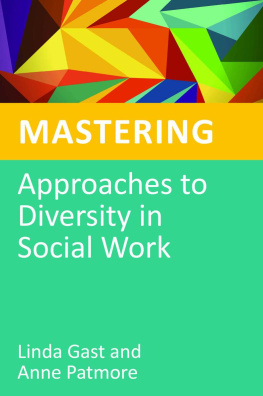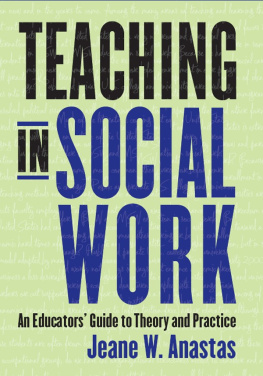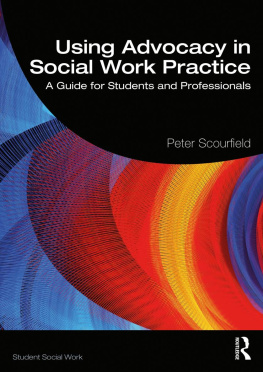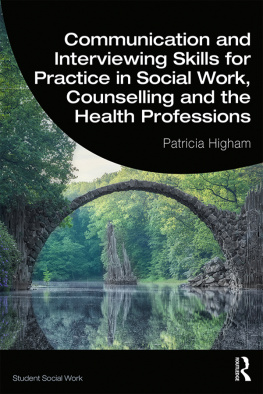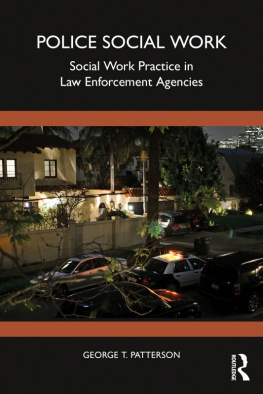Work-Related Learning and the Social Sciences
Work-Related Learning and the Social Sciences provides a clear and accessible introduction to the theory and practice of work. Written in a student-friendly style, it makes use of the following:
- Theoretical perspectives: The theoretical foundations of identity, power, community, citizenship, experiential learning and a range of employability skills provide frameworks for the chapters.
- Key issues: The book addresses such issues as: How are people socialised at work? Why does conflict occur at work? What types of control are exerted at work? What can we learn about our communities from the work we do? How can we develop our employability skills?
- Sector examples: Extensive use is made of examples of the working practices of teachers, social workers, police officers, civil servants and third sector workers, as well as from people engaged in low-skilled work.
- The student voice: The student voice draws upon the relationship between his or her own experiences of work and the key issues covered in the book.
Written as an introductory text for students studying the social sciences, it deals with the ways in which students can appreciate the sociology and politics of work and develop an understanding of their own skills and employability. This book is particularly relevant to students studying work-related learning as part of their social science degrees and to those who wish to enhance their employability and prospects in graduate-level employment.
Gary Taylor is principal lecturer in the Department of Psychology, Sociology and Politics at Sheffield Hallam University. He has written a number of books on social and political theory, social policy and on the media.
Liam Mellor currently works at Certara, a private sector consultancy provider specialising in drug discovery and development software. He has degrees from both Sheffield Hallam University (sociology) and Sheffield University (political communication) and has worked on a range of publications.
Richard McCarter is senior lecturer in the Faculty of Development and Society at Sheffield Hallam University, teaching in the Department of Education and also the Department of Psychology, Sociology and Politics. His interest is technology enhanced learning and e-portfolios, but he also has a background in educational television.
First published 2016
by Routledge
2 Park Square, Milton Park, Abingdon, Oxon OX14 4RN
and by Routledge
711 Third Avenue, New York, NY 10017
Routledge is an imprint of the Taylor & Francis Group, an informa business
2016 Gary Taylor, Liam Mellor and Richard McCarter
The right of Gary Taylor, Liam Mellor and Richard McCarter to be identified as authors of this work has been asserted in accordance with sections 77 and 78 of the Copyright, Designs and Patents Act 1988.
All rights reserved. No part of this book may be reprinted or reproduced or utilised in any form or by any electronic, mechanical, or other means, now known or hereafter invented, including photocopying and recording, or in any information storage or retrieval system, without permission in writing from the publishers.
Trademark notice: Product or corporate names may be trademarks or registered trademarks, and are used only for identification and explanation without intent to infringe.
British Library Cataloguing-in-Publication Data
A catalogue record for this book is available from the British Library
Library of Congress Cataloging-in-Publication Data
Taylor, Gary
Work-related learning and the social sciences / by Gary Taylor, Liam Mellor and Richard McCarter.
pages cm
1.Vocational guidance.2.Employee motivation.3.Job skills. 4.Career development.5.Experiential learning.6.Organizational learning.7.Industrial sociology.I.Mellor, Liam.II.McCarter, Richard.III.Title.
HF5381.T2357 2015
300.71dc23
2015016522
ISBN: 978-1-138-80433-3 (hbk)
ISBN: 978-1-138-80434-0 (pbk)
ISBN: 978-1-315-75307-2 (ebk)
Typeset in Bembo
by Apex CoVantage
We would like to thank a number of people for their help and encouragement while we were writing this book. Thanks to the Higher Education Academy for the generous teaching development grant that allowed us some time to work on particular sections. We have also benefitted greatly from our conversations with colleagues at Sheffield Hallam University, who continue to use their creative talents to look for ways to integrate employability into the curriculum. Our friends and colleagues Malcolm Todd, Luke Desforges, Emma Heron, Joy Drever and Mike McManus have been very supportive. Our thanks also go to Dave Laughton, Bridget Winwood, Jeff Waldock, Charmaine Myers, Pat Quinn and Paul Helm. Alan Wigfield helped to identify some interesting sources on low-skilled work, and we benefitted greatly from his thoughtful contributions in numerous conversations. We also thank our students for granting us permission to recount some of their stories. Gerhard Boomgaarden, Catherine Gray and Alyson Claffey at Routledge have all been generous with their support and guidance throughout the process of writing the book. We would also like to thank our three anonymous reviewers for their comments on the original proposal and for suggesting ways to improve the manuscript. Thanks, finally, to our partners and families who have endured our absence and spurred us on. Karen in particular has been wonderful in reading the chapters, asking questions and providing comments.
Work-related learning is becoming an increasingly important feature of studying at degree level. Relatively few university students now participate in higher education with little or no regard for future employment. The costs of higher education are such that many students need some paid employment to help finance their studies and will often be motivated in part by the belief that a degree will help them to secure some interesting and well-paid work in the future. A degree in itself, however, is no longer enough to gain access to graduate-level work. Graduates often find that they have to prove not only that they have the qualifications necessary for graduate-level work but that they also have the skills, attributes and awareness necessary to secure employment at that level. Work-related learning can help students to develop their understanding of the world of work and to recognise their own abilities. This development can take place through internships, working on voluntary sector projects or through learning to reflect upon their current part-time employment. Regardless of where students gain their experiences of work, it is important that they learn from these experiences and start to develop awareness of their skills, interests and capabilities. For students in the social sciences, this can sometimes be challenging. Although students studying such subjects as Sociology, Politics, Psychology and Criminology are not generally training for a particular career, such degrees are packed with transferable skills and, given the opportunity to explore these, students studying the social sciences can leave university with plenty to offer a wide range of employers. This book seeks to illustrate to students studying the social sciences the benefits of studying work, of reflecting upon their own abilities and of enhancing their own employability.


